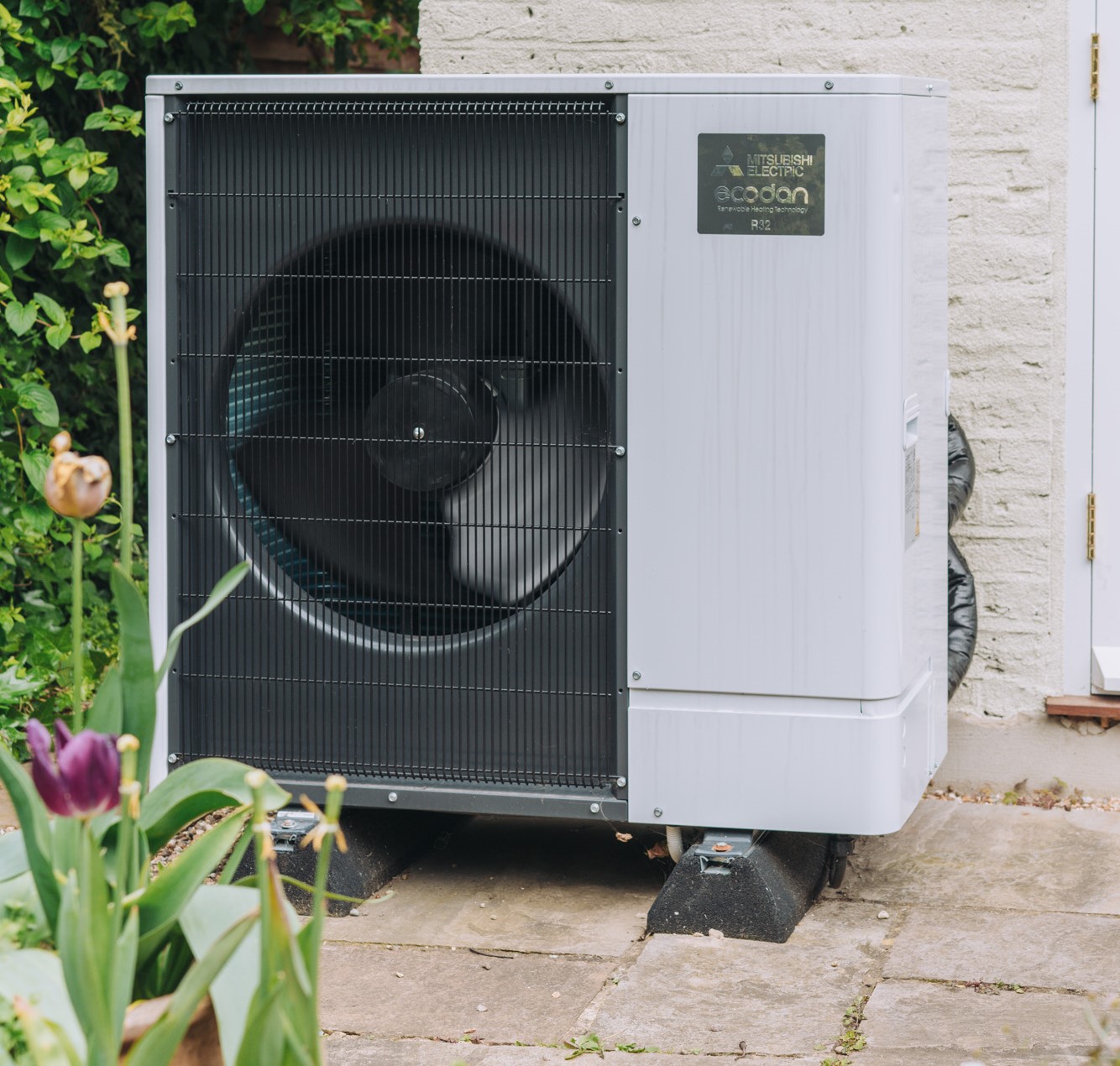All you need to know about Heat Pumps

Published on 27 September 2024 09:15 AM
Everyone is a-buzz about heat pumps. But what are they? How do they work? And when are they right for you?
What are they?
Heat pumps are a heating technology that moves heat from the surrounding environment into the home. Some heat pumps have the potential to also cool, and transfer heat from inside to out.
How do they work?
Regardless of the source of heat, heat pumps work in the same way: they extract heat from the environment by transferring it in a heat exchanger to a liquid refrigerant. With the absorption of heat the liquid refrigerant evaporates into a low-pressure, low-temperature gas. This gas is then compressed and in doing so, it increases in temperature. Like a conventional boiler, this compressed air then heats cool water which once it reaches optimal temperature, begins to circulate through your radiators and heats your home. As it loses heat, the refrigerant begins to return to its liquid state, which once depressurised can begin to absorb more heat and start the cycle again.
There are three kinds of heat pump: ground source, air source and air-to-air.
- Ground source heat pumps take heat from the ground which uses a water-antifreeze mixture pushed through underground pipes to the heat exchanger.
- Air source heat pumps take heat from air that is blown across the heat exchanger.
- Air-to-air heat pumps (these work slightly differently) as are not plumbed into a radiator system but use fans to distribute the heat in the home.
Are they efficient?
Many people come to us concerned that heat pumps will increase their electricity bill – especially now that electricity is approximately 3 times the price of gas. However, it is worth noting that heat pumps are very efficient.
Efficiency in heating is measured as a ‘coefficient of performance’ (CoP). If you are looking at heat pumps keep your eyes on this figure! The average heat pump produces three units of energy for every unit consumed, it therefore has a CoP of 3. Whereas gas boilers produce 0.85 units of heat for every unit of energy consumed, it therefore has a CoP of 0.85.
Depending on your tariff or if you have solar, the day-to-day environmental and financial impact of having a heat pump will vary. For example, Anna and Shelagh live in a fully retrofitted house in South London – their home is fully insulated, has eight solar panels and an air-source heat pump. On a late winter’s day, their smart meter read zero because their heating was self-powered and their home is not leaky. Their running costs are £0 and they generate no daily carbon emissions related to heating
However, not all of us have had that level of work done to our homes, and therefore the running cost analysis would be very different when looking at installing a heat pump. It is worth noting your tariff or if your suppliers offer any incentives for heat pumps.
So when are they right for you?
If you are curious about installing a heat pump, what you decide to do will be dependent on:
- Is there a place on your property where you can put a heat pump?
- Is your house insulated?
Much like your Nan told you, and I’m sure you tell your kids and grand-kids, ‘put on a jumper before you turn up the heat.’ The same goes for your home, it is important to ensure that the fabric (i.e. walls, floors, roofs) are as least wasteful of heat as possible, before looking toward more high-tech heating solutions.
Insulating your loft is an easy, low cost & intrusion way to slow 25% of your homes heat loss. Wall insulation and underfloor insulation are more costly and more intrusive, but together will slow 50% of your homes’ heat loss. And ensuring you have adequate windows and doors account for the remainder.
By taking this ‘fabric-first’ approach, regardless of how you heat your home, you will increase the comfort levels in your home, reducing your environmental impact and reducing your daily energy usage and associated running cost. And, freeing up the potential to save towards a heat pump!
- Your budget.
Heat pumps require upgrading your heating system as well as specialist installers.
The upfront installation costs can vary between £14,000 - £34,000. These costs are affected by the technology you choose, adapting your heating system, running pips underground (if a ground-source heat pump is in use) and the size of your property. It is worth noting that the government currently runs ‘The Boiler Upgrade Scheme’ which provides up to £7,500 toward the cost of installation.
It is worth noting that these costs and works can be staggered over time minimising the disturbance to you and spreading the costs over time. For example, if you are having underfloor insulation installed, you could run pipes beneath the floorboards. If you are having your walls insulated, while the radiators are being repositioned you could upgrade the pipe work so that the system is ‘heat pump ready’.
Heat pumps are a wonderful and efficient heating technologies. However, if you are interested or are approached by someone about installing a heat pump, it is worth taking a moment to breath and zoom out on the particularities of your home and what will make it as comfortable, cheap to run and easy on the planet.
Want to learn more?
There are fantastic resources available from Nesta and the Energy Savings Trust.
We at South East London Community Energy are also organising free eco-home tours in SE London where you can speak with homeowners who have done deep retrofit of their homes, including installing heat pumps. They will share their experiences and you can stay for a natter afterwards.
About the author
Flavia Bertram is Outreach Officer, Energy Efficiency at South East London Community Energy (SELCE).

South East London Community Energy is a local energy cooperative that is dedicated to a cleaner and fairer energy future through local energy generation, reducing local energy usage and making sure no one gets left behind in the process. They have multiple initiatives ranging from support for SE Londoners struggling with their bills, to support for homeowners looking to make their homes more energy efficient, to helping community buildings access local solar energy and efficient lighting systems at affordable rates. For more information visit: www.selce.org.uk
